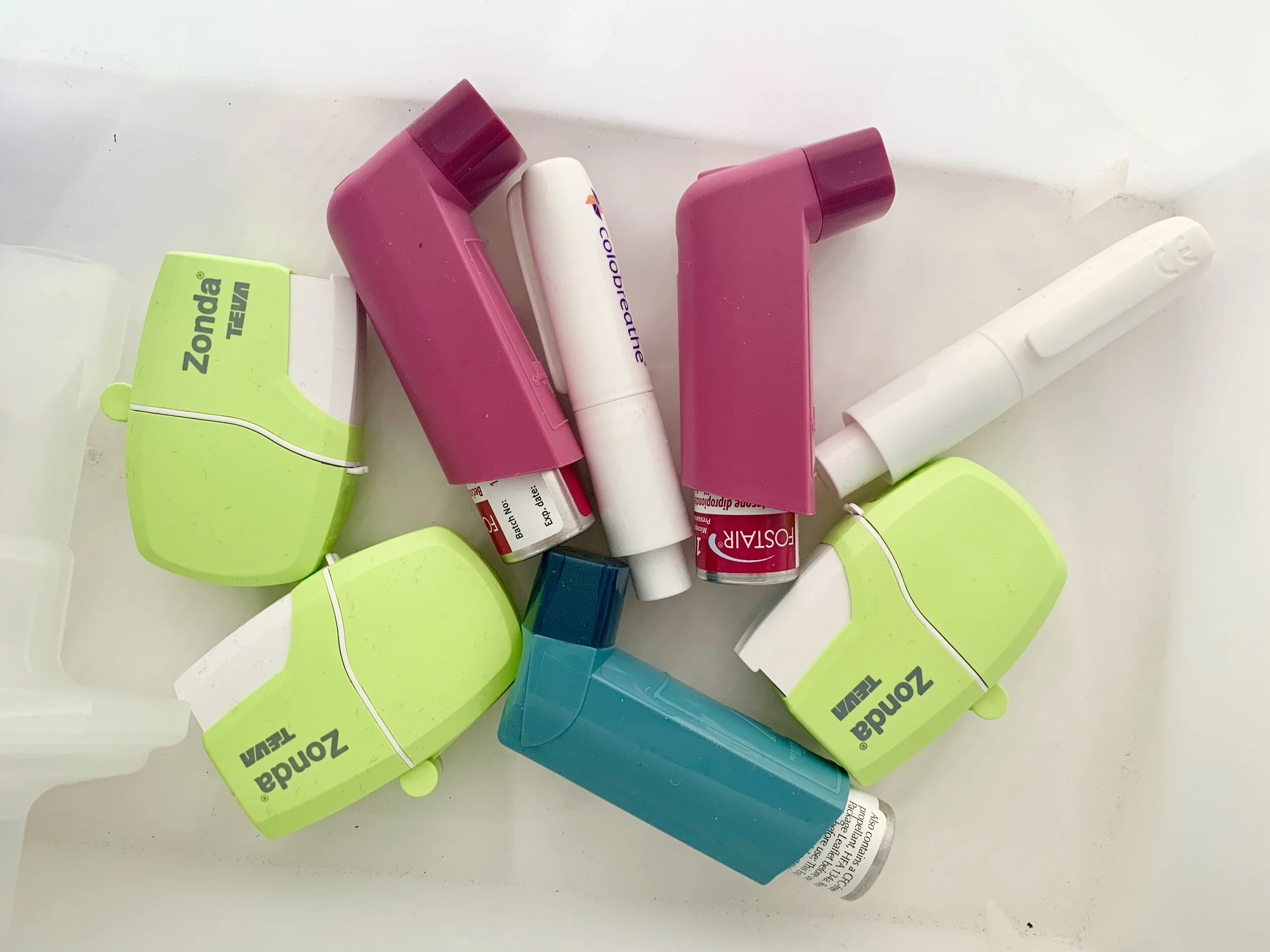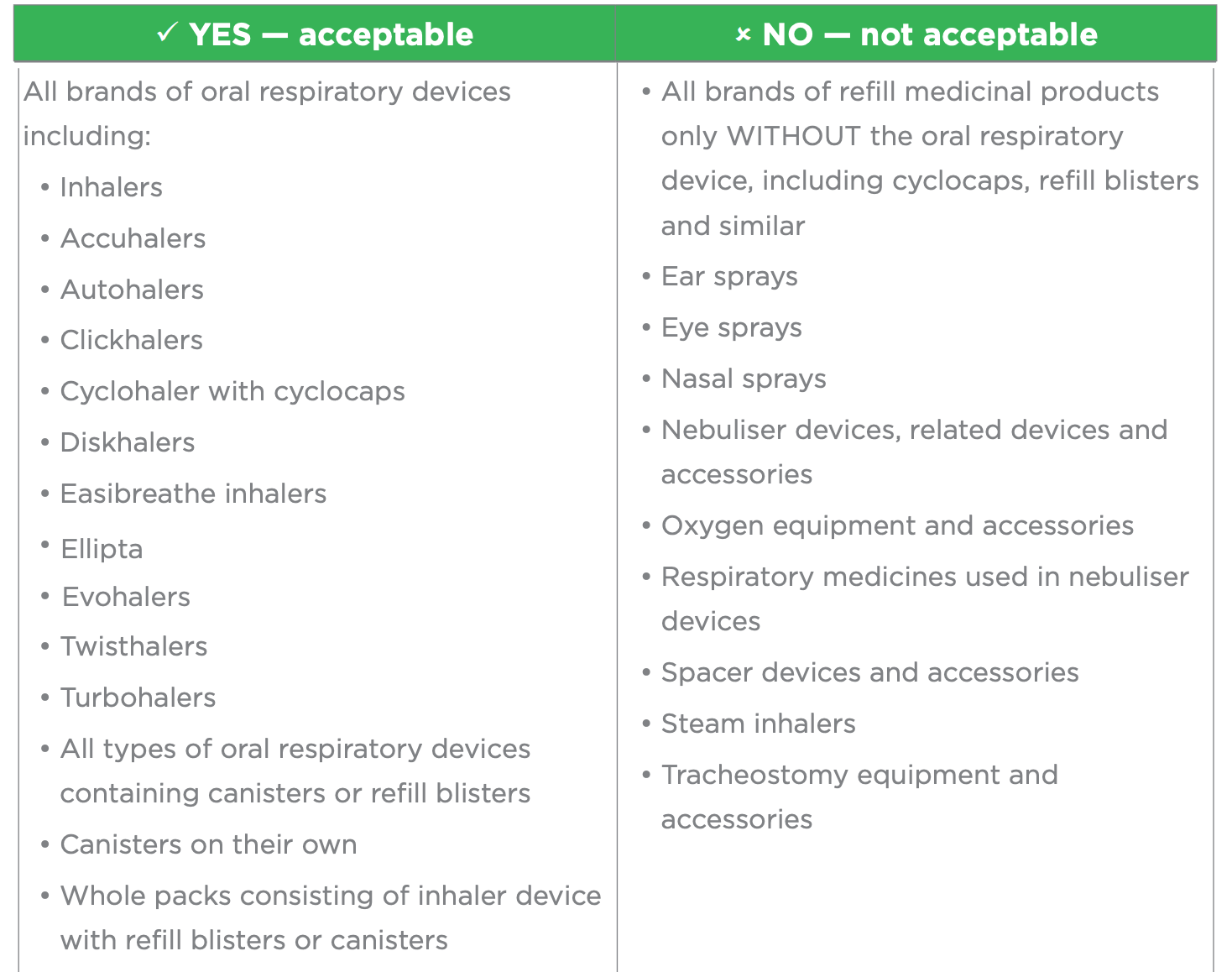Reducing Waste: What To Do With Medical Inhalers
Having a long-term medical condition is a burden in many ways. Outside of the obvious, I find the amount of waste that I produce really frustrating. If I want to stay healthy, I have to take my medication. If I take my medication, I have a tremendous amount of packaging to deal with.
Inhalers are one area that I’ve been trying to become extra conscious of.
“73 million respiratory inhalers are prescribed every year in the UK and not disposing of them correctly can be harmful to our environment.”
Inhalers are made from high quality plastics and metals. It is so incredibly wasteful for them to be sent to landfill. Some inhalers (metered-dose inhalers, or MDIs), also contain a propellant that is a very powerful greenhouse gas.
GlaxoSmithKline reported, “Our inhalers produce 5.2 million tonnes of CO2 emissions, and are the second biggest contributor to our global footprint - just after the transportation aspects involved in making and supplying our products around the world.” Crazy, huh?!
Here are a couple of ways that I’ve learnt to reduce my waste when it comes to inhalers:
1. Is it even empty yet?
Unlike my Fostair inhaler, Ventolin or Salbutamol (blue) inhalers don’t have any kind of dose counter on the device (at least in the UK) and a lot of things I’ve read indicate that people aren’t really sure when they are truly empty since they still produce a visible and audible ‘puff’ even once the medication is depleted.
I did some digging into suggested tips. One article suggested seeing how well they float in water - the more it floats, the emptier it is. Not super precise, but useful, perhaps. Of course, there’s also the option to keep some kind of tally every time you take a puff. But with the number of things I already have to test, record and monitor every day, this seemed a little burdensome. Thankfully, there’s a simpler way.
Weigh the canister. A full canister (when not inside the mouthpiece) weighs around 29g. An empty one is 15g, according to this research paper in the British Medical Journal and these Swiss researchers. I tested a couple of inhalers that I’d had kicking around - ones that I wasn’t sure whether to dispose of or not: 17g and 23g.
I have a digital kitchen scale that I use regularly - partly for cooking, and partly for weighing carbohydrate-containing foods since I have CF-related diabetes. This is always on hand and does the trick for me.
The BMJ article that I mentions cautions people against using the 'shake method' or continuing to use inahlers if they still see a 'puff' as they could be getting a sub-therapeutic dose. That said, this paper also reveals that "patients perceive their inhaler to be empty when 82 doses remain. This correlates with recycling data, showing that on average 96 doses remain in discarded pMDIs."
2. Recycle them at your local pharmacy
Over 512,000 tonnes of carbon dioxide could be saved every year if people in the UK alone recycled their inhalers.
Pharmacies have always taken back unwanted medicines, however due to clinical guidelines, all medicines (including inhaler devices) have to be incinerated.
GSK have pioneered a scheme called Complete the Cycle.
Complete the Cycle was set up in the UK in 2011. By the end of 2017, over 1.2 million inhalers had been recycled and recovered. This has saved carbon dioxide emissions equivalent to taking 5,199 cars off UK roads. Crazily to me though, was the fact that I didn’t hear about it until 2019 and I realise that may more people are still unaware!
Complete the Cycle enables responsible recycling and recovery of many oral respiratory inhalers – not just those manufactured by GSK.
Online, you can find a list of devices accepted as well as your nearest participating pharmacy. If your pharmacy isn’t on there, it might be worth asking them if they still offer this service (I often find that websites are not as frequently updated as they could be!). If nothing else, this will tell them that there is demand for more conscious medical disposal and maybe they will start to rethink their operating practises. The more we talk about making positive change, the more we plant a seed…
If you have any tips for reducing medical waste, in terms of inhalers or anything else, I’d love to hear them! Comment below or drop me a message on Instagram or Twitter @_nataliejohanna

